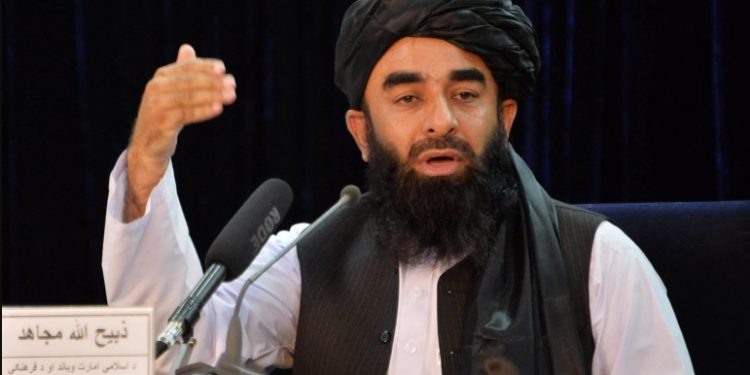Peshawar: The Taliban have postponed the formation of a new government in Afghanistan for next week, their spokesman Zabiullah Mujahid said Saturday. The insurgent group is currently struggling to give shape to a broad-based and inclusive administration acceptable to the international community.
The insurgent group was expected to announce Saturday the formation of the new government in Kabul. It is likely to be led by the outfit’s co-founder Mulla Abdul Ghani Baradar. This is the second that the Taliban have delayed the formation of the new government since they seized Kabul August 15.
“The announcement about the new government and Cabinet members will now be made next week,” Mujahid said. He did not give any further details.
Khalil Haqqani is a member of a committee constituted by the Taliban to negotiate talks with different groups over the formation of the government. He said the Taliban’s bid to form a broad-based government in Kabul acceptable to the world is causing the delay.
“The Taliban can form a government of their own. However, they are now focussing to have an administration in which all parties, groups and sections of the society have proper representation,” Haqqani said. He acknowledged that ‘the Taliban alone will not be acceptable to the world’.
Former Afghan premier and head of Jamiat e Islami Afghanistan Gulbuddin Hekmatyar and brother of former Afghan President Ashraf Ghani, who have announced their support to the Taliban, will be given representation in the Taliban government, Haqqani informed. The Taliban are also in the process of negotiating with other stakeholders to seek their support for their government, he added.
Earlier, sources said that Baradar, the Chairman of the Taliban’s Political Office in Doha, Qatar, is likely to be the head of the government in Kabul.
US Secretary of State Antony Blinken said Friday that America and the international community expect the Taliban in Afghanistan to form an inclusive government with representations from different communities and fulfil its commitments like countering terrorism, respecting the rights of women and minorities and not engaging in reprisal.
“As we’ve said and as countries around the world have said, there is an expectation that any government that emerges now will have some real inclusivity, and that it will have non-Talibs in it who are representative of different communities and different interests in Afghanistan,” Blinken told reporters ahead of his important visit to Doha where the political office of the Taliban is based.
“The expectation is to see inclusivity in government, but ultimately the expectation is to see a government that makes good on commitments that the Taliban have made, particularly in freedom of travel, not allowing Afghanistan to be used as a launching ground for terrorism directed at the US or any of the allies and partners, upholding the basic rights of the Afghan people, including women and minorities, and not engaging in reprisals,” Blinken added.
UK Foreign Secretary Dominic Raab, who was in Pakistan, said Friday the Taliban had made a series of undertakings, ‘some of them are positive at the level of words’ but there was a need to test whether they translated into deeds.






































